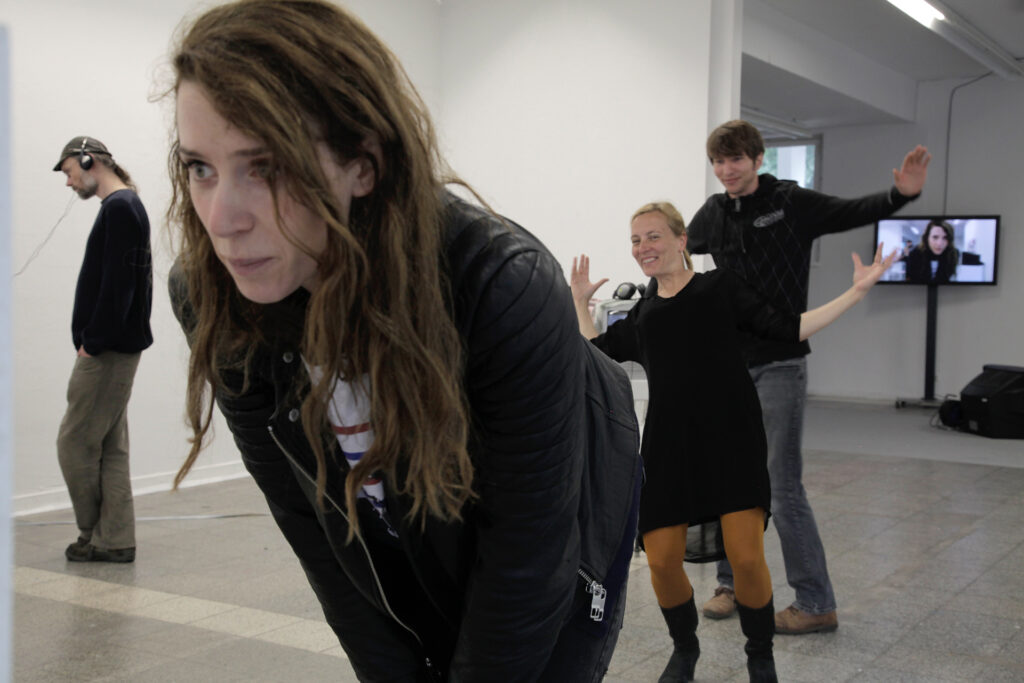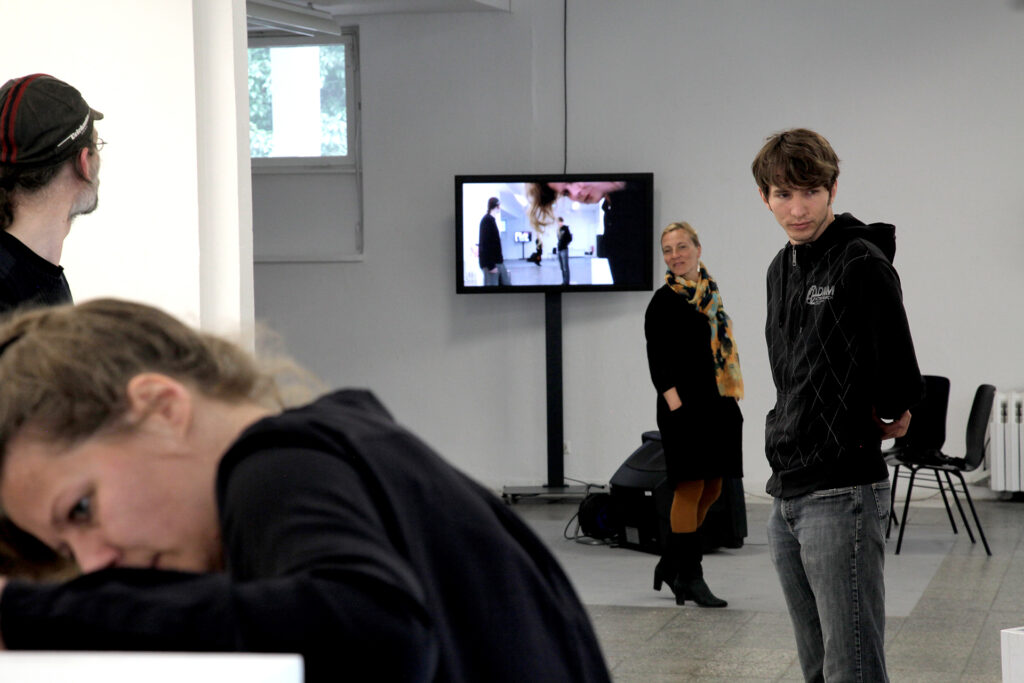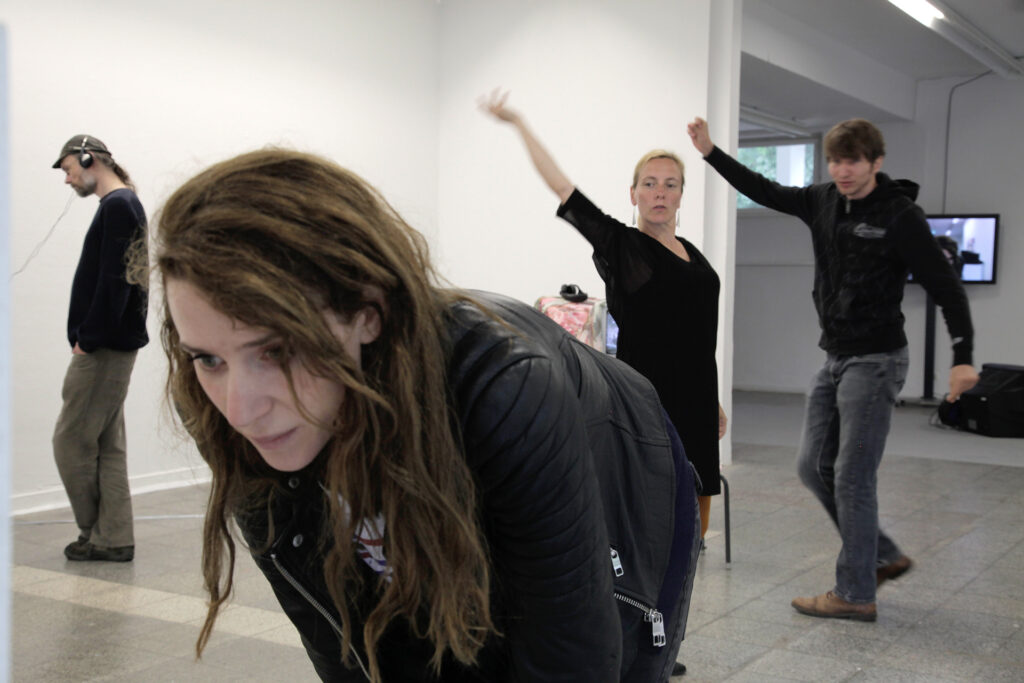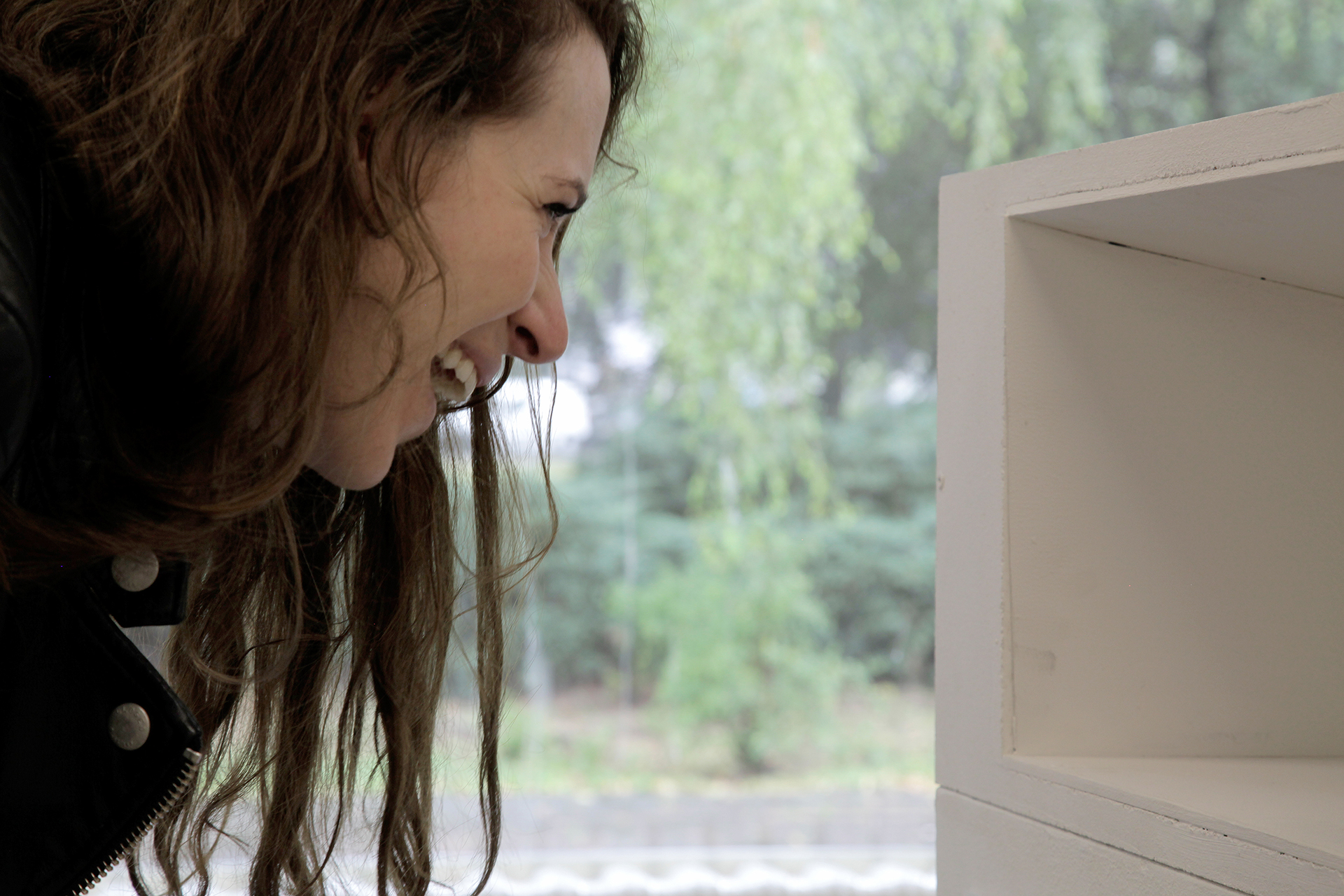RECOGNIZE YOURSELF – GNOTHI SAUTON
MEDIA INSTALLATION
by Konrad Hempel and Claudia Lehmann
art gallery at Hamburger Platz, Berlin
Can a system recognize itself? Can I recognize myself as part of the system? Can I recognize myself at all? In recognizing oneself lies the impossible. Just as the observer in quantum mechanics influences the system, I, as my own observer, influence myself and thus no longer observe myself, because I am no longer the same. Nevertheless, I am part of the system which consists simplified of me and of others. Maybe it is therefore only possible to recognize oneself in or through these others, without meeting the demand to recognize oneself. But who are the others? Are they not only part of my self-created system? And can I myself recognize these others as these, if I myself am part of this system? But if I speak of the others, I already assume disjunctive systems with this formulation. How many such systems are there, if the others are able to recognize me as an individual, but also as a part of one or their system? Are the others then still the others at all, or just themselves? Are they able to recognize themselves as themselves? So, if recognition is possible, it is not recognition. If I can recognize what I recognize, if I have the ability to do so, then that means that the recognition corresponds in some way to a potentiality, a potency that I already have within me, so that the recognition brings nothing new. The only possibility of cognition is the cognition of the impossible.
Konrad Hempel and Claudia Lehmann
(loosely based on Jacques Derrida, Werner Heisenberg and Niklas Luhmann).
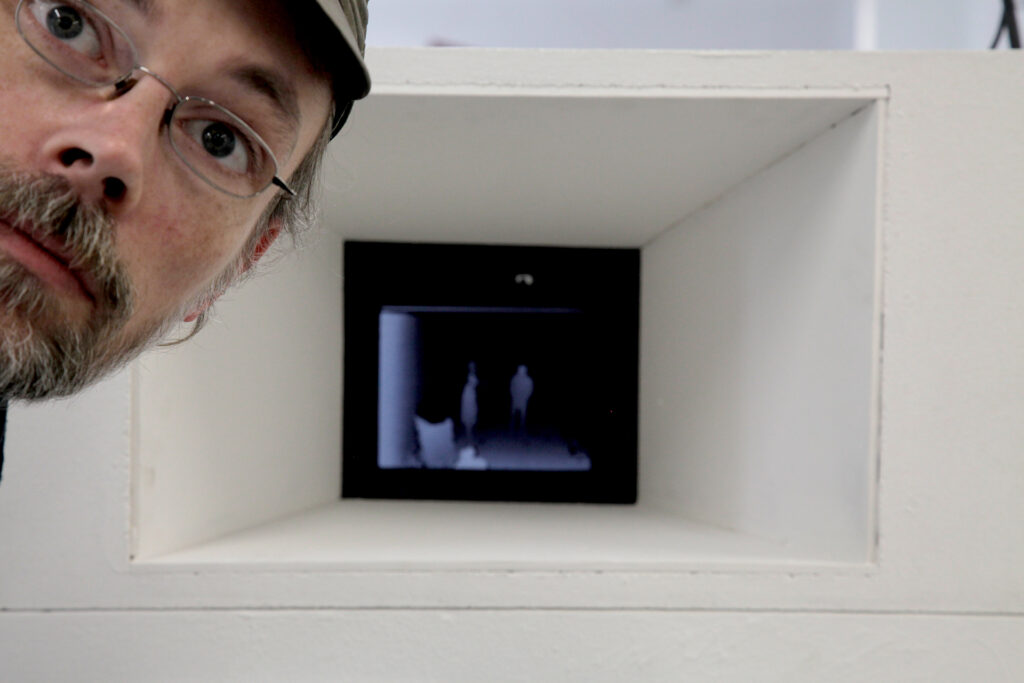
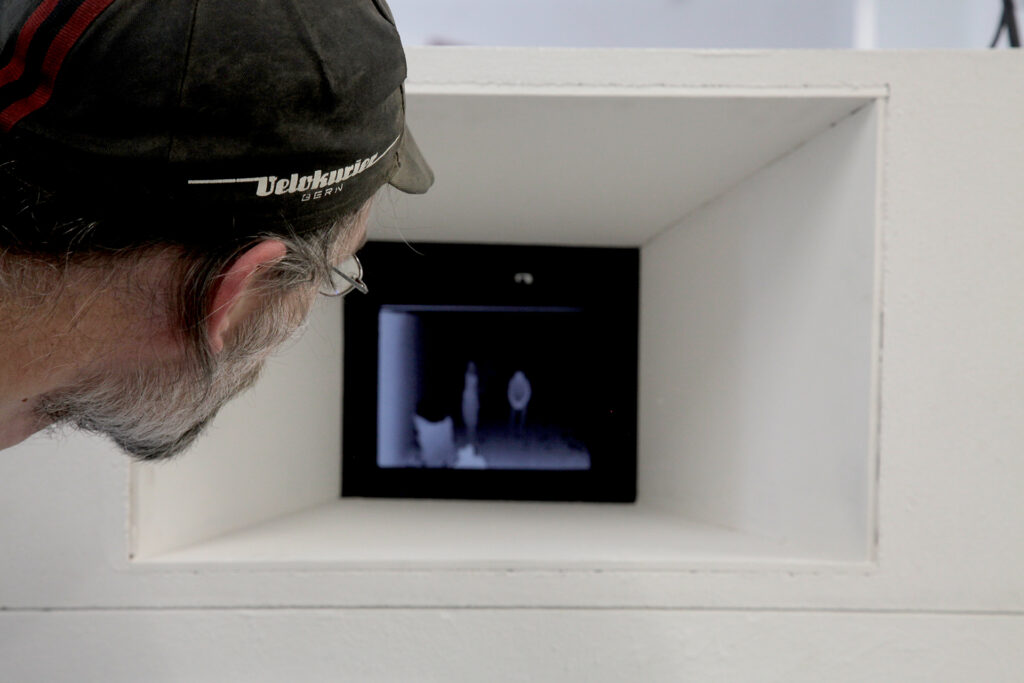
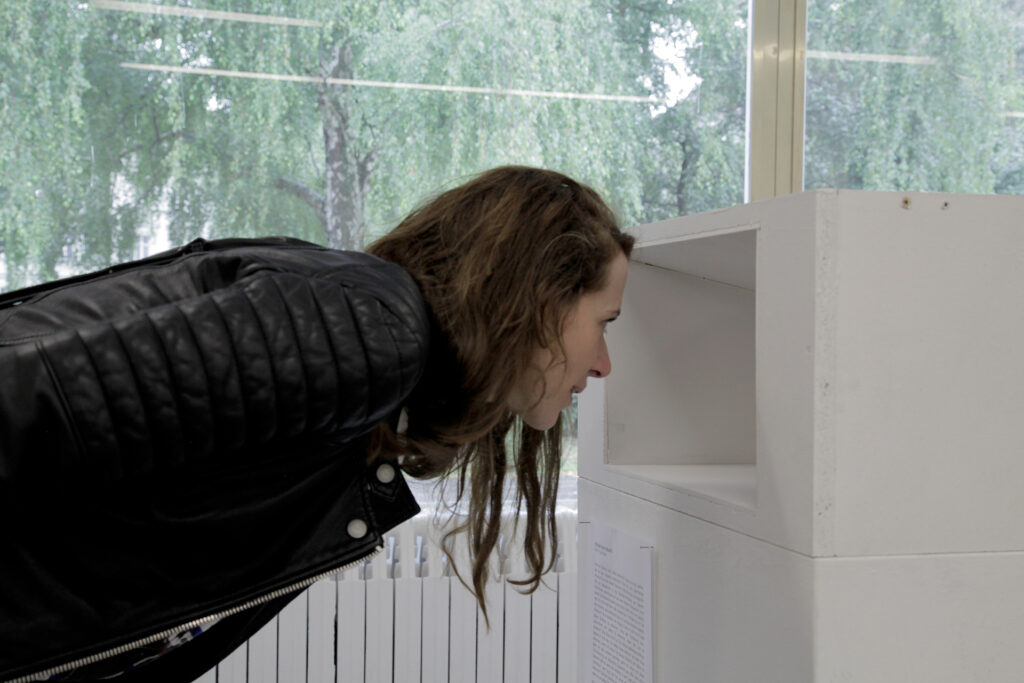
MEDIENINSTALLATION
von Konrad Hempel und Claudia Lehmann
Kunsthalle am Hamburger Platz, Berlin
Kann ein System sich selbst erkennen? Kann ich mich selbst als Teil des Systems erkennen? Kann ich mich überhaupt erkennen? Im sich selbst Erkennen liegt schon das Unmögliche. Wie der Beobachter in der Quanten-mechanik das System beeinflusst, beeinflusse ich als mein eigener Beobachter mich selbst und beobachte damit auch schon nicht mehr mich selbst, weil ich nicht mehr der- oder dieselbe bin. Trotzdem bin ich Teil des Systems, das vereinfacht aus mir und aus Anderen besteht. Vielleicht ist es deshalb nur möglich sich in oder durch eben diese Anderen zu erkennen, ohne der Forderung nachzukommen sich selbst zu erkennen. Aber wer sind die Anderen? Sind diese nicht nur Teil meines selbstgeschaffenen Systems? Und kann ich selbst diese Anderen als eben diese erkennen, wenn ich selbst Teil dieses Systems bin? Wenn ich aber von den Anderen spreche, gehe ich schon mit dieser Formulierung von disjunkten Systemen aus. Wie viele solche Systeme gibt es, wenn die Anderen in der Lage sind, mich als Individuum, aber auch als Teil eines oder ihres Systems zu erkennen? Sind die Anderen dann überhaupt noch die Anderen, oder nur sie selbst? Können sie sich als sich selbst erkennen? Also, wenn das Erkennen möglich ist, ist es kein Erkennen. Wenn ich das, was ich erkenne, erkennen kann, wenn ich die Fähigkeit dazu habe, dann heiІt das, dass die Erkenntnis in gewisser Weise einer Potenzialität entspricht, einer Potenz, die ich bereits in mir habe, so dass die Erkenntnis nichts neues bringt. Die einzige Möglichkeit des Erkennens ist das Erkennen des Unmöglichen.
Konrad Hempel und Claudia Lehmann (frei nach Jacques Derrida , Werner Heisenberg und Niklas Luhmann)
